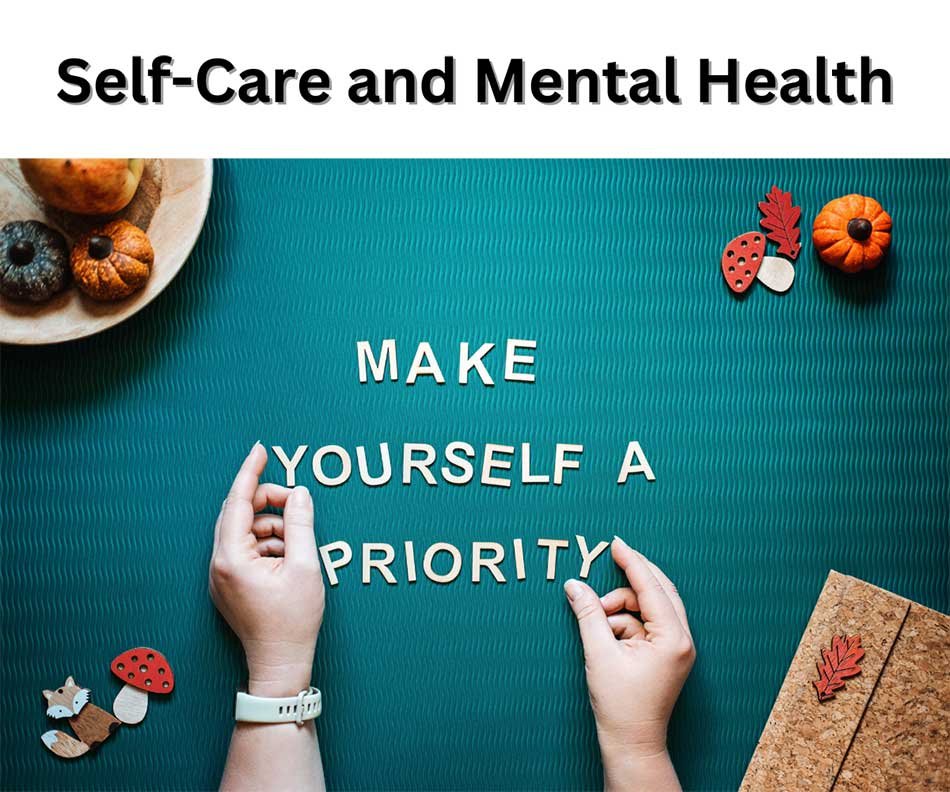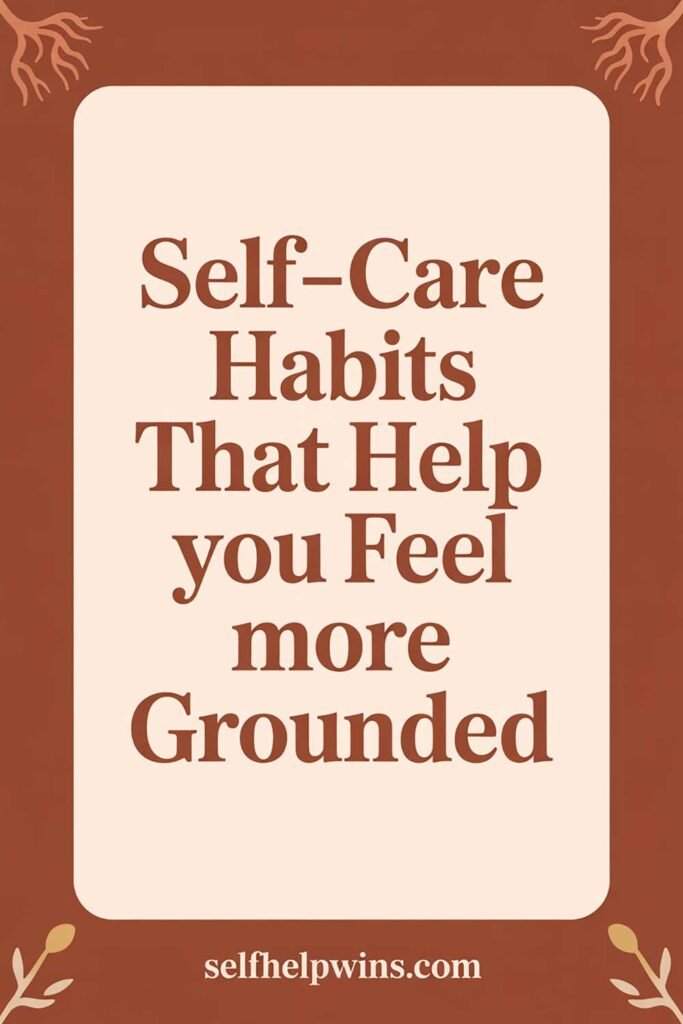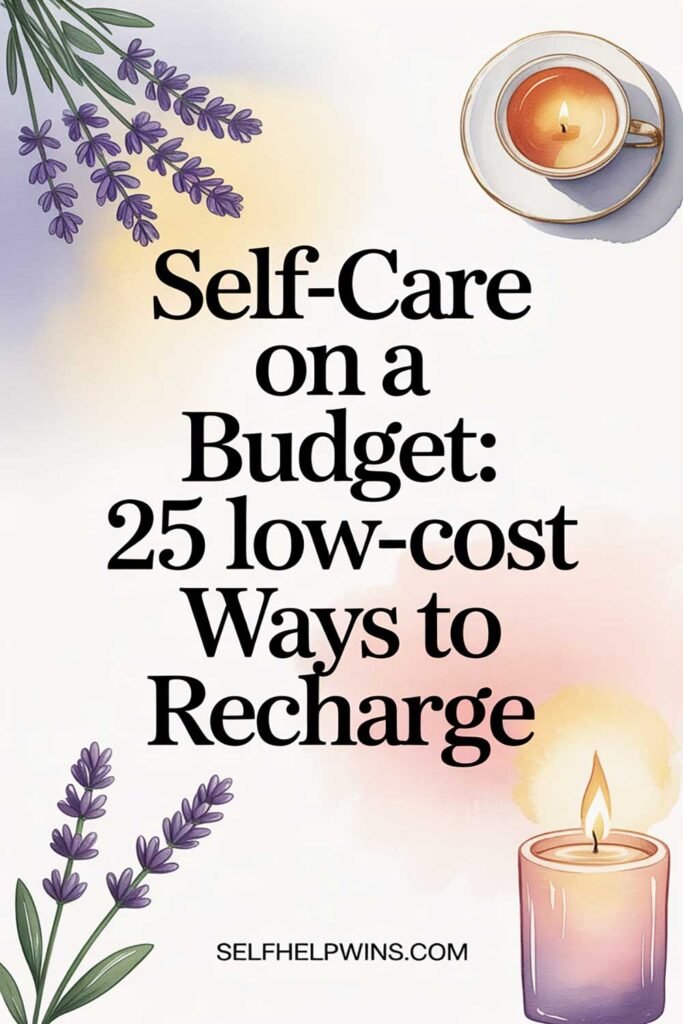
If you know someone who could benefit from this article, please share it with them. Prioritizing self-care and mental health can lead to a more balanced, fulfilling, and resilient life.
Self-Care and Mental Health: A Path to Wellness
What Is Self-Care?
Self-care involves intentionally taking actions to maintain or improve your physical, emotional, and mental well-being. It’s not just about pampering yourself; it’s about recognizing your needs and making choices that support your overall health.

The Link Between Self-Care and Mental Health
- Reduces Stress: Helps manage daily challenges more effectively.
- Boosts Emotional Resilience: Improves your ability to cope with adversity.
- Enhances Physical Health: Supports better sleep, energy levels, and immunity.
- Promotes Personal Growth: Encourages self-awareness and mindfulness.
Why Self-Care Is Essential
In today’s busy world, it’s easy to overlook self-care. However, neglecting your well-being can lead to burnout, decreased productivity, and mental health challenges. Incorporating self-care into your routine is a proactive step toward maintaining balance and preventing emotional and physical exhaustion.
Types of Self-Care
1. Physical Self-Care
Taking care of your body through nutrition, exercise, and rest.
- Examples:
- Eating balanced meals and staying hydrated.
- Getting regular physical activity, such as walking or yoga.
- Prioritizing sleep by maintaining a consistent bedtime routine.
2. Emotional Self-Care
Acknowledging and managing your emotions effectively.
- Examples:
- Practicing mindfulness or meditation.
- Journaling about your thoughts and feelings.
- Seeking support from friends, family, or a therapist.
3. Social Self-Care
Building and maintaining meaningful relationships.
- Examples:
- Spending quality time with loved ones.
- Joining a group or community with shared interests.
- Setting boundaries to protect your time and energy.
4. Mental Self-Care
Engaging in activities that stimulate your mind and promote clarity.
- Examples:
- Reading, learning, or solving puzzles.
- Limiting exposure to negative news or social media.
- Practicing gratitude by reflecting on positive aspects of your life.
5. Spiritual Self-Care
Connecting with your inner self and finding purpose or meaning in life.
- Examples:
- Practicing meditation or prayer.
- Spending time in nature.
- Exploring your values and aligning actions with them.
Self-Care Tips for Mental Health
1. Create a Routine
Incorporate self-care activities into your daily schedule to make them a consistent habit.
- Example: Dedicate 10 minutes each morning to mindfulness or stretching.
2. Set Boundaries
Learn to say no to commitments that drain your energy or conflict with your priorities.
3. Practice Gratitude
Focus on the positive aspects of your life to boost mood and perspective.
- Activity: Write down three things you’re grateful for each day.
4. Seek Professional Support
Don’t hesitate to reach out to a mental health professional if you’re feeling overwhelmed or need guidance.
5. Stay Connected
Maintain supportive relationships and surround yourself with people who uplift you.
6. Be Kind to Yourself
Practice self-compassion and avoid self-criticism. Treat yourself with the same kindness you’d show a friend.
Overcoming Barriers to Self-Care
1. Lack of Time
- Solution: Start with small, manageable steps like a 5-minute meditation or a short walk.
2. Feeling Guilty
- Solution: Remind yourself that self-care is essential for your well-being and allows you to support others more effectively.
3. Uncertainty About Where to Start
- Solution: Experiment with different activities to discover what works best for you.
Practical Exercises for Self-Care
- Breathing Exercise: Spend 5 minutes focusing on deep, slow breaths to calm your mind.
- Journaling Prompt: Write about what self-care means to you and how you can integrate it into your life.
- Mindfulness Activity: Spend a few moments observing your surroundings without judgment.
- Gratitude Practice: List three things that went well today and why they made you feel good.
Picture This
Imagine waking up each day feeling refreshed and grounded. You’ve created a routine that supports your physical, emotional, and mental well-being. Challenges feel manageable, and you approach life with resilience and optimism. What small step will you take today to prioritize your self-care and mental health?






